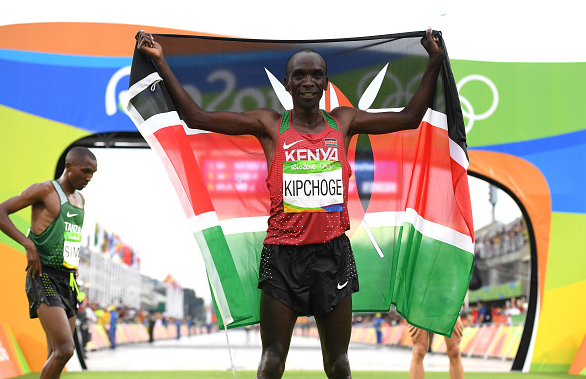Op-ed: Why I’m not buying the sub-two hour marathon projects
The story of the century – or not? Athletics writer and historian Roger Robinson on why he's not taken by Nike and Adidas' obsession with breaking two.

By Roger Robinson
Wow! Some guy might run 42.195 kilometres in 119 minutes, 59 seconds!
Thanks to a spend of undisclosed millions of dollars, he will do it in an exclusive set-up event, round and round a dead-flat, super-smooth surface in perfect weather behind a pace car positioned as shelter from any wind.
A milestone in history?
Or trivialization of a great sport?
The most likely athlete to achieve this media release immortality is Eliud Kipchoge. That makes me sad. For me, Kipchoge is already immortal. He’s the greatest competitive marathoner since Abebe Bikila, unmatched for real victories over the best opposition, using inventive tactics and relentless resolve to win in different conditions at Hamburg, Rotterdam, Chicago, Berlin, London (twice) and the Rio Olympics. And yes, he can run a really fast marathon (2:03:05).
RELATED: Nike’s sub-two marathon attempt has a set date
Now this competitive genius has been hired to follow a car around 17.5 laps of a characterless 2.4-kilometre circuit.
Forgive me if I don’t get excited.
Here are six reasons why, as a running writer, I decline to be complicit in boosting this artificial non-event:
It’s not a race
It’s a time trial. It’s more like those attempts on the world land speed record in the Utah salt flats or the Australian desert. The whole point of the marathon is to line up with your peers and try for 42.2K to outrun and outsmart them. Today’s elite packs and the mass fields behind them make the modern marathon one of the greatest sports in human history. Time trialling behind a Tesla is not.
The course is key
Variety is what makes road running such an endlessly interesting sport. No runner needs telling that every course is different, and the same course can change unpredictably on different days. Say the names–Boston, New York City, Ottawa, Toronto, Twin Cities, Vancouver, Victoria–each conjures its unique character, its variables, a special set of challenges to plan for and meet. Time trialling on a perfect course is like playing golf on a great big boring indoor billiard table.
The marathon distance is actually meaningless
The four-minute mile was arbitrary enough, but at least the mile as a unit of distance had a history of 2,000 years. Everyone who drives a car knows what a mile means (particularly in the U.S.). At 42.2K, the modern marathon is an invented and almost random distance, concocted to appease royalty at the 1908 London Olympics. This number is significant only for us runners who know the marathon’s short history. But no one outside running has a clue how far it is.
What about the women?
For 50 years road running has been a world leader in giving women equal opportunity and recognition. Suddenly they are invisible and irrelevant again.
Beware of doping
Track and field in the 1980s was sold to TV on world records. The result was the doping epidemic we’re still struggling to emerge from. I won’t applaud any breakthrough that comes out of a syringe.
It’s all about shoe sales
Sorry, even though it’ll be nice for Adidas and Nike to “make history,” we know that this is 100 per cent a marketing exercise. It’s media manipulation. Look at the headline in the New York Times: “Do Nike’s New Shoes Give Runners an Unfair Advantage?” What a cunning promo line. What runner could resist trying shoes that produce so much of an advantage that there has been serious debate from sports scientists about their legality in sanctioned competitions? The Times dutifully trotted out that ad campaign line instead of researching the long history of performance-enhancing footwear.
Anyway, I very much doubt the so-called barrier will be broken this year. The sales campaign is too profitable to end.
I will not be joining in on the marketing hype with other journalists. I’ll watch and applaud regular runners in real races, thanks. When someone runs 119 minutes, 59 seconds to win a genuine race in Toronto, Vancouver or New York, I’ll be cheering the loudest.
Roger Robinson is a historian and one of the most celebrated athletics writers in the world. He has run several marathons, including a 2:18:45 at the age of 41.


